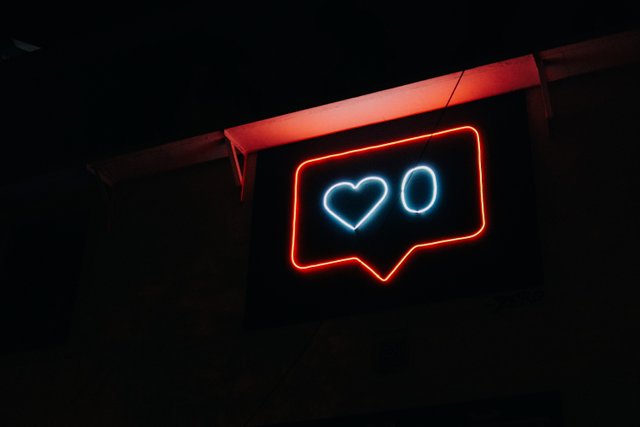Public debate may be polarized, but can we really speak of increasing differences in opinion?

Welcome to the world of echo chambers, confirmation bias, the backfire effect and the spiral of silence.

The public debate is completely polarised in recent years. Whether the discussion is about climate change, whether or not to vaccinate, migration or multinationals: the contradictions are getting bigger, the nuance seems to disappear. It seems like no one is prepared for substantial and constructive discussion. Moreover, those extreme manifestations are often accompanied by negative feelings about people who have a different opinion.
This so-called 'affective polarization' - in which opponents see each other as moral enemies - has been going on in the United States for quite some time; just think about the fierce frontier between Democrats and Republicans. Not so much the love for one's own party or group inflames the polarization, but rather the hostility towards the other: it is 'we' against 'them'.
I have always found it enormously fascinating to observe people, to ask them why they have such a strong opinion on specific subjects. It strikes me that people find it often challenging to answer these kinds of questions. They claim to be open and understanding but, somehow, they're always convinced that they're right. In this post, I want to talk about the psychological mechanisms that influence this kind of behavior. Welcome to the world of echo chambers, confirmation bias, the backfire effect and the spiral of silence.

A personalized world is dividing us
A first mechanism has to do with the digitization of the public debate. Look at your own feed, on social media you don't easily find dissenters; social media's algorithm stimulates self-segregation.
Many in the tech world imagined that the internet would connect people in unprecedented ways, allow for divisions to be bridged and wounds to heal – a Kumbaya dream of sorts. Today, those same dreamers find it quite unsettling to watch as the tools that were designed to bring people together are used by people to magnify divisions and undermine social solidarity.
These tools were built in a bubble, and that bubble has burst.
The US can only function as a healthy democracy if we find a way to diversify our social connections, if we find a way to weave together a strong social fabric that bridges ties across difference. Right now, we are moving in the opposite direction with serious consequences.
So the circle you have chosen yourself functions as an echo chamber: you can safely exchange opinions with like-minded people without being contradicted. Moreover, the likes give you an emotional reward: it makes you feel good, you're gaining confidence, etc. You could say digital communities withdraw in their own worlds. They adhere to what they feel is right: one never misses an opportunity to rail against the brutish and imperialistic United States, while the other is praising Donald Trump as a great politician. One doesn't stop picking on the climate do-gooders, while the other precisely denounces the irresponsible who dare to deny that man is causing global warming.
In the echo chamber, the confirmation bias dominates: proponents and opponents see their opinion constantly confirmed. People hold fast to their positions and no longer listen to arguments from the opposing party. In fact, the more criticism they get, the stronger the belief in their own right: the backfire effect. To make matters worse, search engines and algorithms have created the filter bubble, presenting us with even more own opinions. As a result, you'd think that moderate voices are rather rare. However, these voices have just completely disappeared from the debate.
The digitization of the debate also influences the tone of discussions. In digital communication, we miss subtle signals such as intonation, facial expression and body language, which makes us react more emotionally and sometimes violently.


Maybe there is only a small ditch?
Another mechanism is the spiral of silence. It means that you are afraid to give your opinion if you know that you are taking a minority position. Out of fear of being rejected or ridiculed, most people decide to don't speak their mind. Moreover, their own internal censor ensures that dissenting opinions in the echo chamber are being condemned. Everything is group-think and you must go along with the group or you will be shunned. The arguments used for this are not important. It's the appreciation you receive that counts. Very human and understandable, but disastrous for the debate.
Of course, peer pressure plays a role wherever people are in groups, but apparently social media reinforces the spiral of silence. Pew Research Center, an independent American agency, concluded this five years ago.
Since you can post anonymously and you do not have to look into the eyes of your debate partner, I certainly did not expect this result. The need for constant validation is stronger than I thought. Unfortunately, this ensures that social media are homogeneous strongholds in which tunnel vision and group-think determine the debate.
It strikes me, also when I look at my own feed, that we only get to hear and see the extreme expressions. The debate may be polarized, but I wonder if there are actually increasing disagreements. In my opinion, the biggest conflict is that people no longer really listen to each other. As a result, people often experience a big gap where perhaps there is only a small ditch...

Note: for more background information, certainly click on the links mentioned in the text. You can also find them here:
- The Strengthening of Partisan Affect
- Self-segregation: how a personalized world is dividing Americans
- Social Media and the ‘Spiral of Silence’
Photo 1 by Prateek Katyal on Unsplash
Photo 2 by Jonathan Ross on Unsplash
This post has already appeared on my U° Community account.
To listen to the audio version of this article click on the play image.

Brought to you by @tts. If you find it useful please consider upvoting this reply.